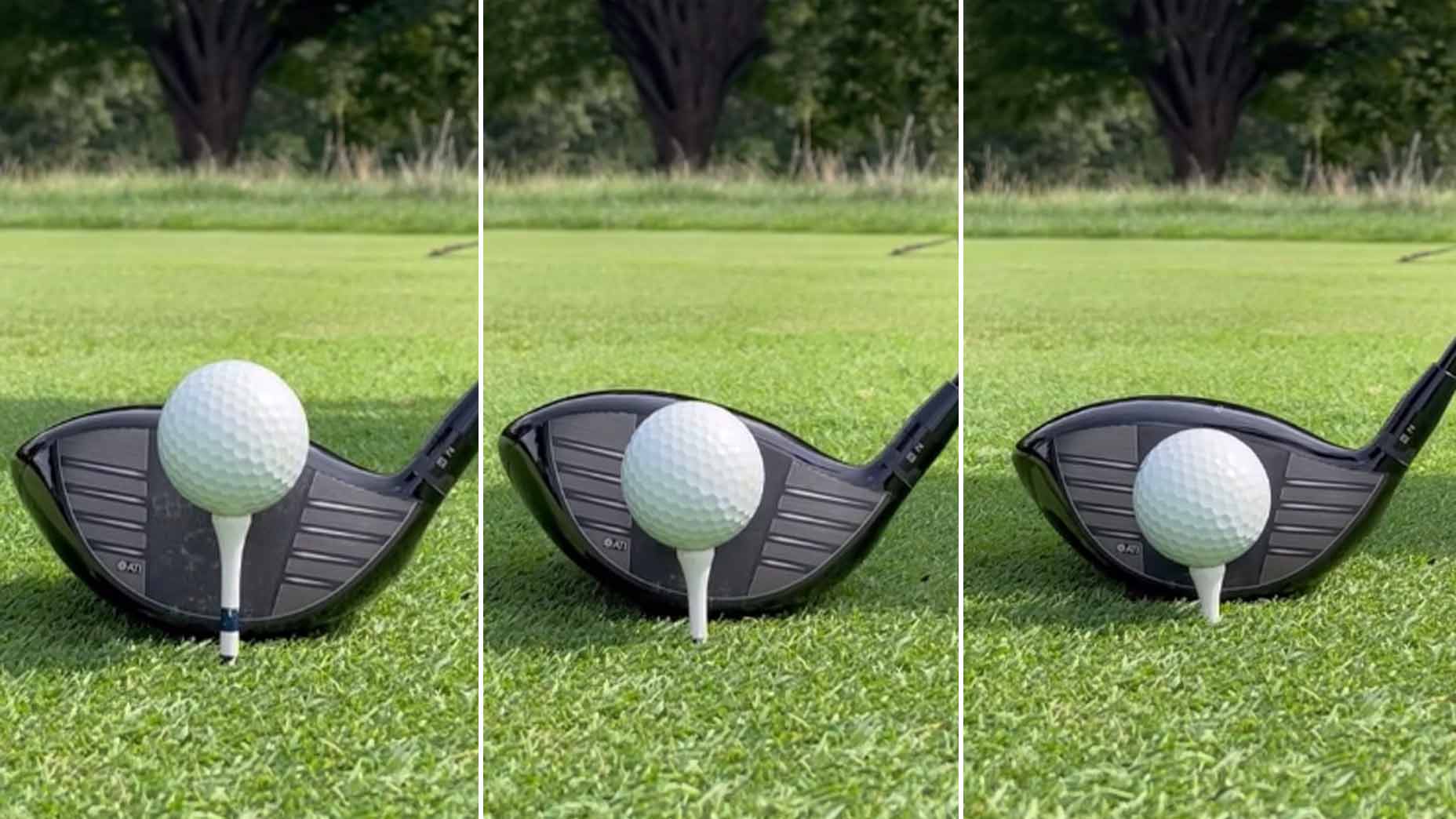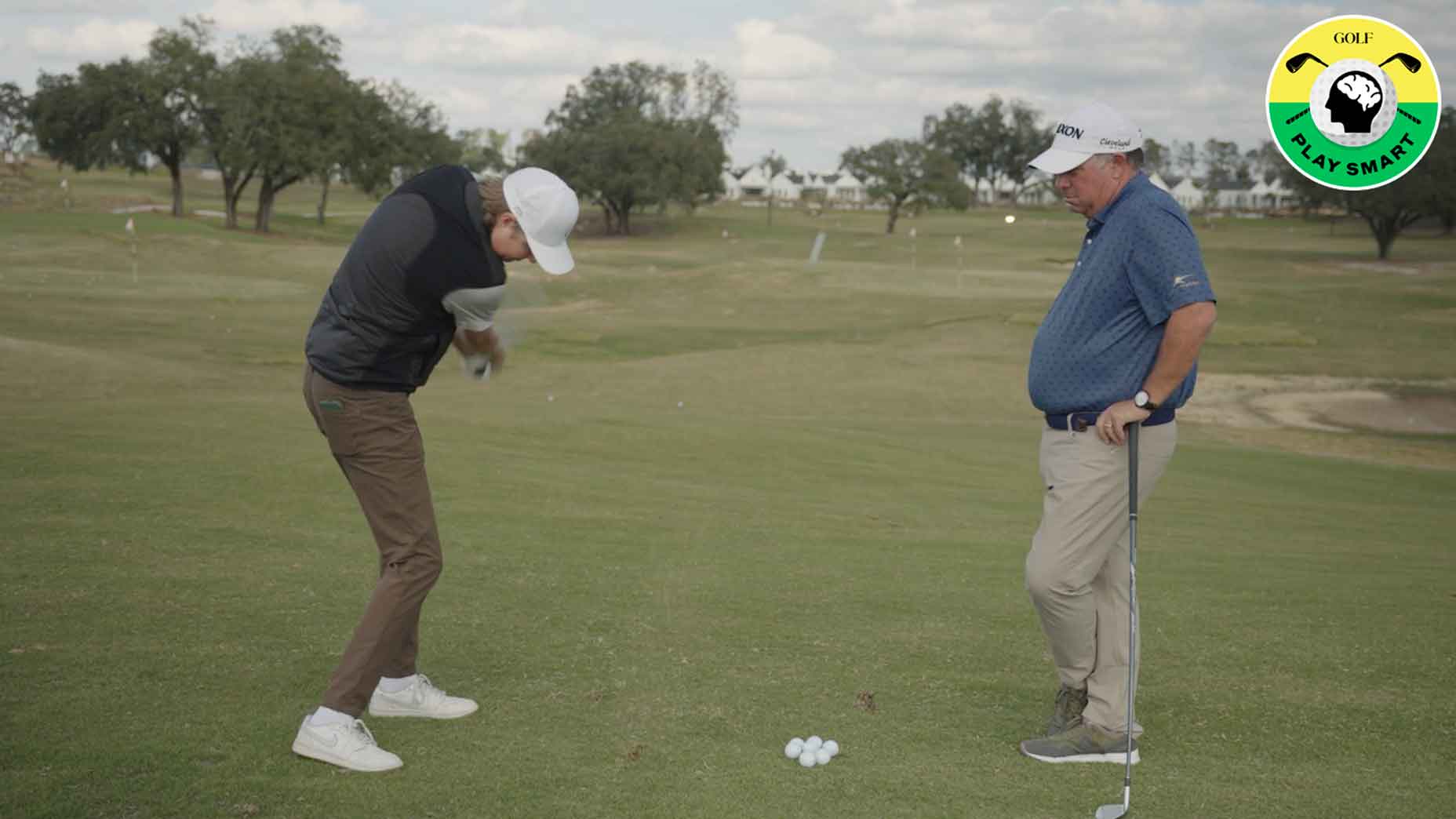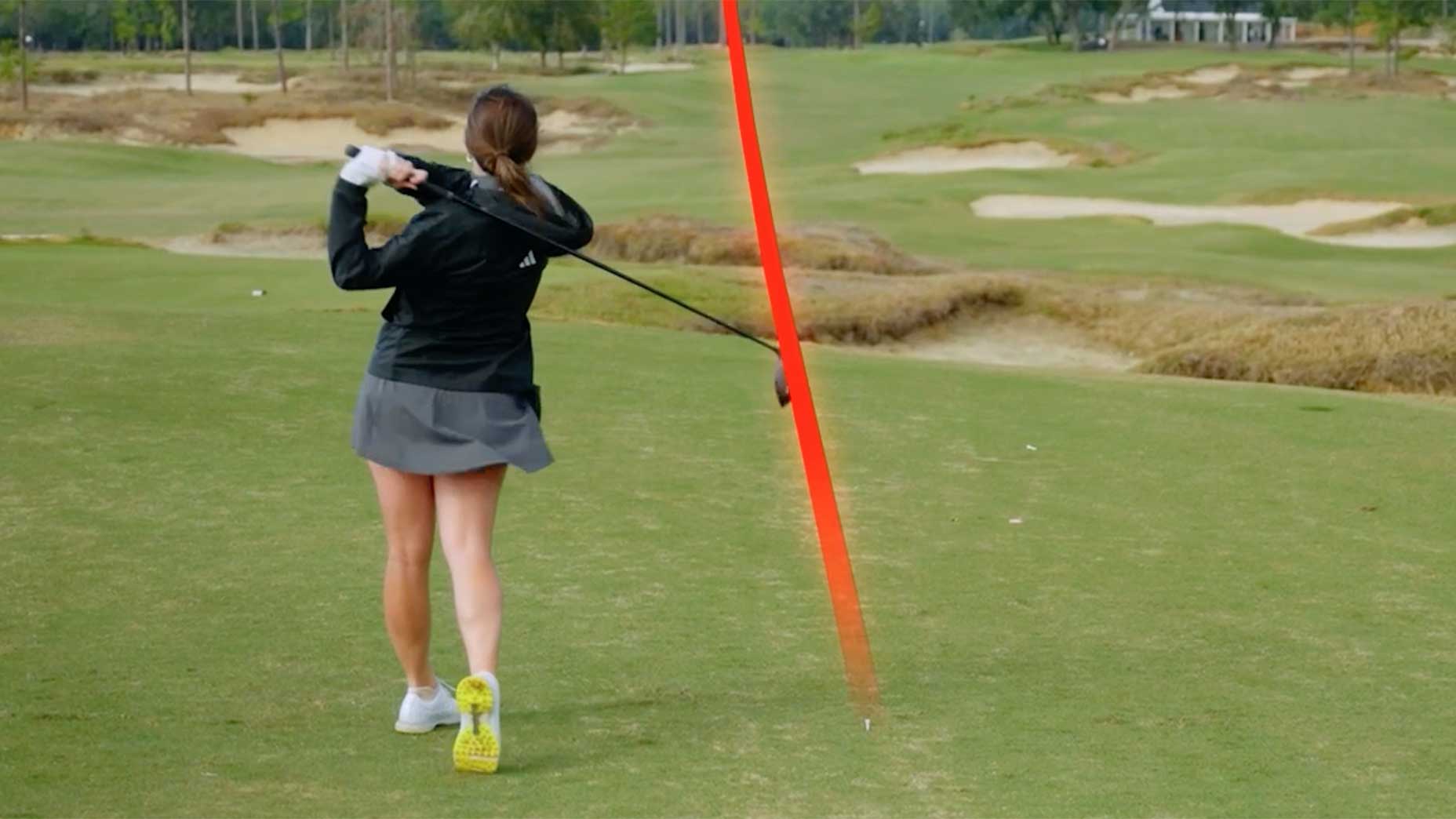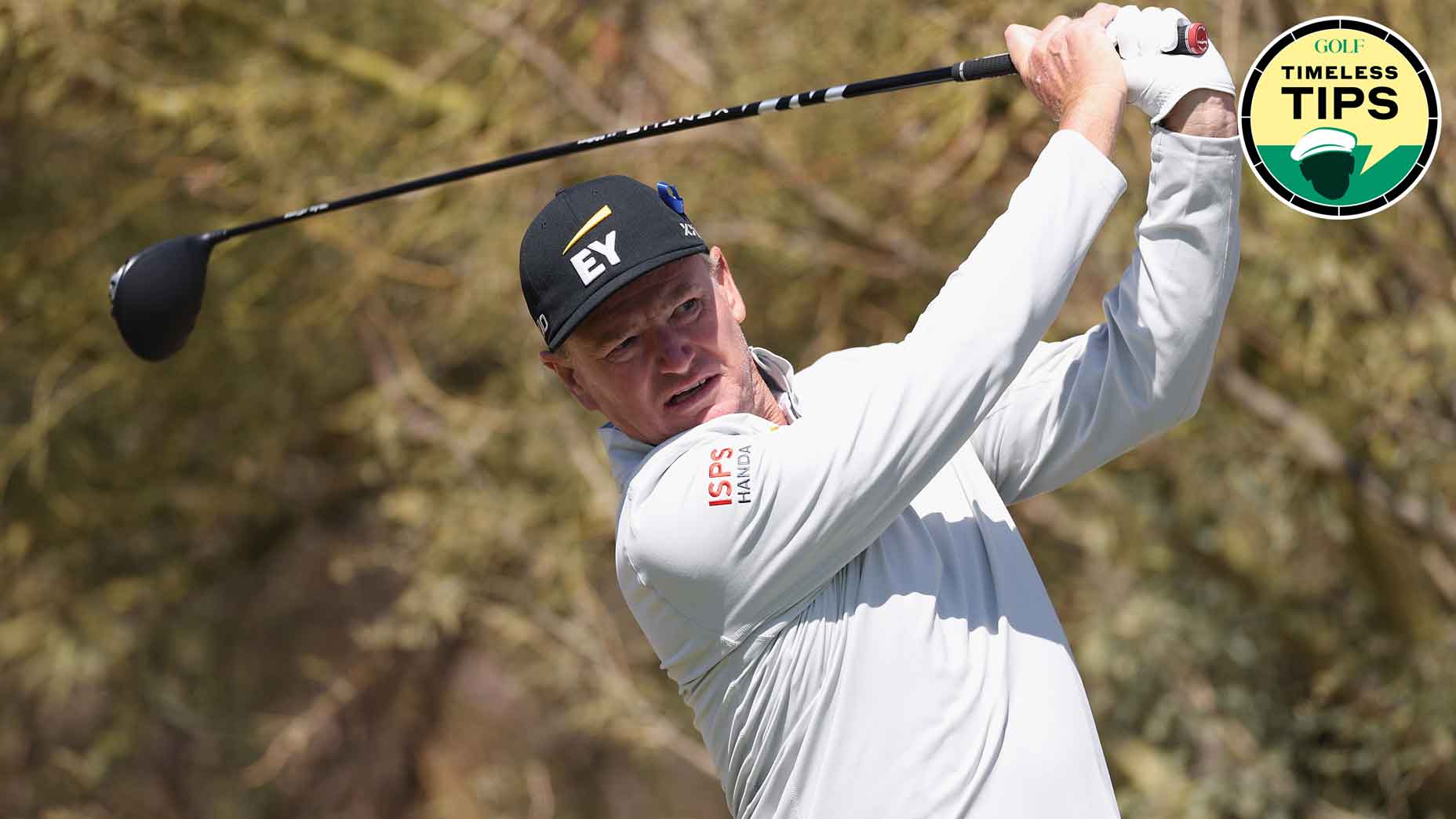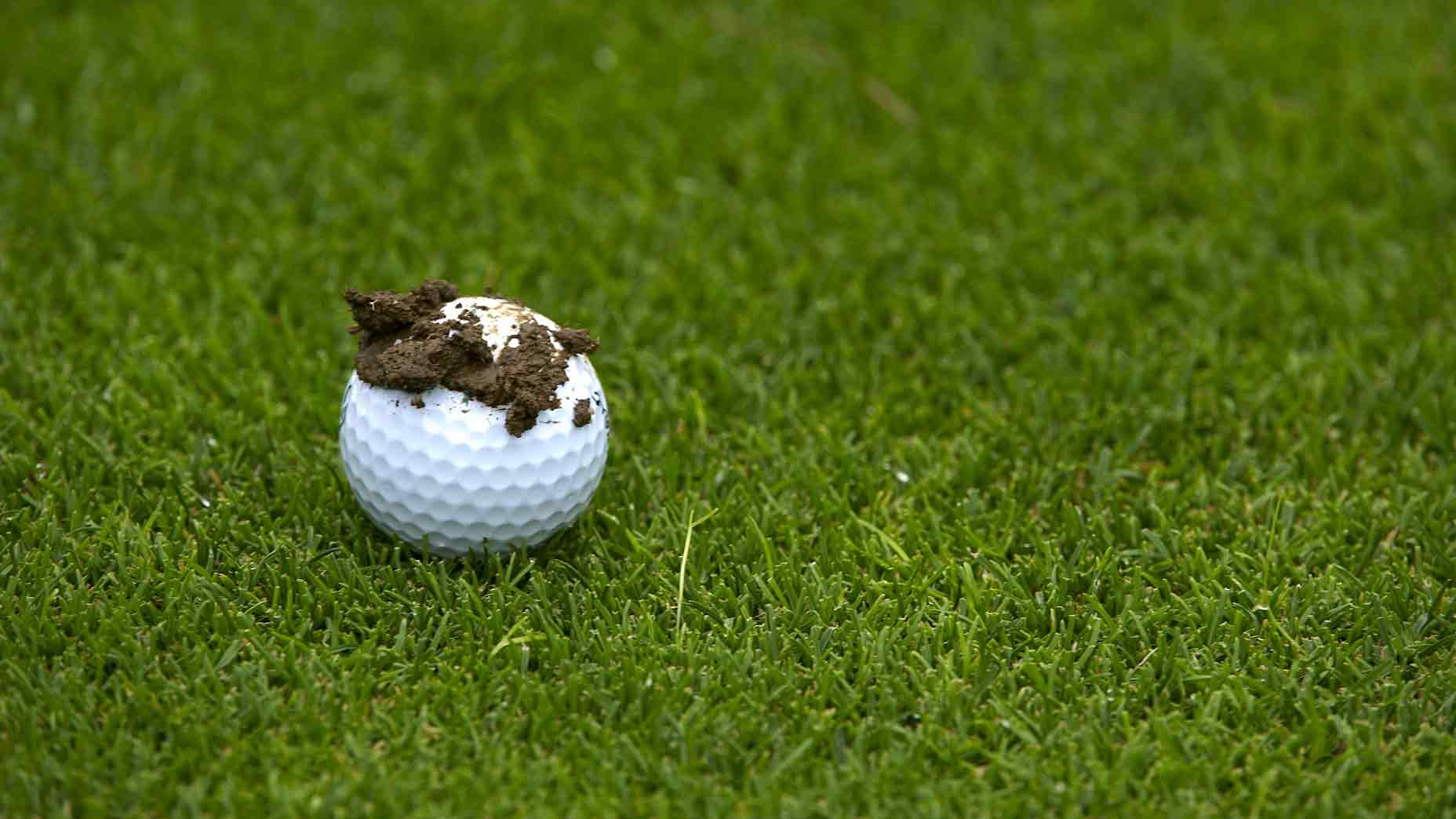Tour players don’t like to discuss how they shape shots. They simply shape them, whether it’s by “thinking” fade or, maybe, “feeling” a draw. Trust me — their mechanics are that refined. But they had to start somewhere, and for intrepid shotmakers there’s no better place to begin than the setup.
By altering your ball position, body tilt and alignment, you can hit the ball through nine different shotmaking windows: fades, draws and straight balls on a low, mid and high trajectory. That’s plenty of options, even for a Tour pro. Follow the steps below.

TO CHANGE CURVE, CHANGE YOUR ALIGNMENT
This part’s easy. Set up with your feet and body closed to your target line to invite a draw. Do the opposite for a fade. And if you want to hit the ball straight, set your lines parallel to the target. Now, check the grid below to see how it all matches up.
THEN, CHANGE YOUR BODY TILT
For high shots, tilt your torso away from the target, so that your left shoulder sits above your right (and even with your left hip). Just as it does when you play the ball forward in your stance, tilting away from the target shallows out your path and adds loft. The opposite is true if you lean your torso toward the target. Setting your right shoulder above your left at address decreases loft and launches the ball on a lower trajectory.

TO CHANGE TRAJECTORY, CHANGE YOUR BALL POSITION
Positioning the ball back in your stance tends to produce less-lofted shots, since you’ve forced the club to come into impact on a steeper angle of attack. As you move the ball forward in your stance, your swing gets shallower and the face tends to remain open. The result? Higher-than-normal shots that stop on a dime (Ball position also affects direction; see photo above.)
ARC SIGNS
Your clubhead travels on an arc around your body through the hitting zone. The farther back you put the ball in your stance, the earlier you’ll strike it on this arc, giving you more of an inside-out, draw delivery. As you move the ball toward the target, the swing path straightens out until it transforms into a outside-in fade delivery. 


